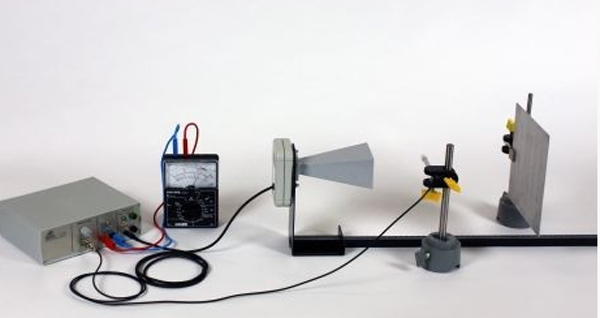Standing Waves in the Range of Microwaves

When electromagnetic waves are bounced back and forth between two reflectors, a standing wave is formed. From the wavelength of the standing wave, the frequency of the waves can be determined.
- Convenient all-in-one set includes control unit, transmitter and receiver as horn antennae, microwave probe, microwave benches, grating, slit plates, prism, and reflection/absorption plates
- With the same set, all aspects of microwave physics can be studied quantitatively: polariziation, reflection, transmission, refraction, propagation, diffraction, interference, inverse square law, standing waves, conservation of energy in reflection and transmission
- Very detailed experiment guides for all experiments
Support rod, stainless steel, l = 250 mm, d = 10 mm
Plate holder
Multi-range meter, analogue
Connecting cord, 32 A, 750 mm, red
Connecting cord, 32 A, 750 mm, blue
Right angle clamp expert
Barrel base expert
Microwave set II, 110…240 V
The wavelength of a standing wave is measured and the frequency determined. By extrapolation of the oscillating state on the reflector is determined.
- Microwaves
- Electromagnetic waves
- Reflection
- standing waves
- Distance law
